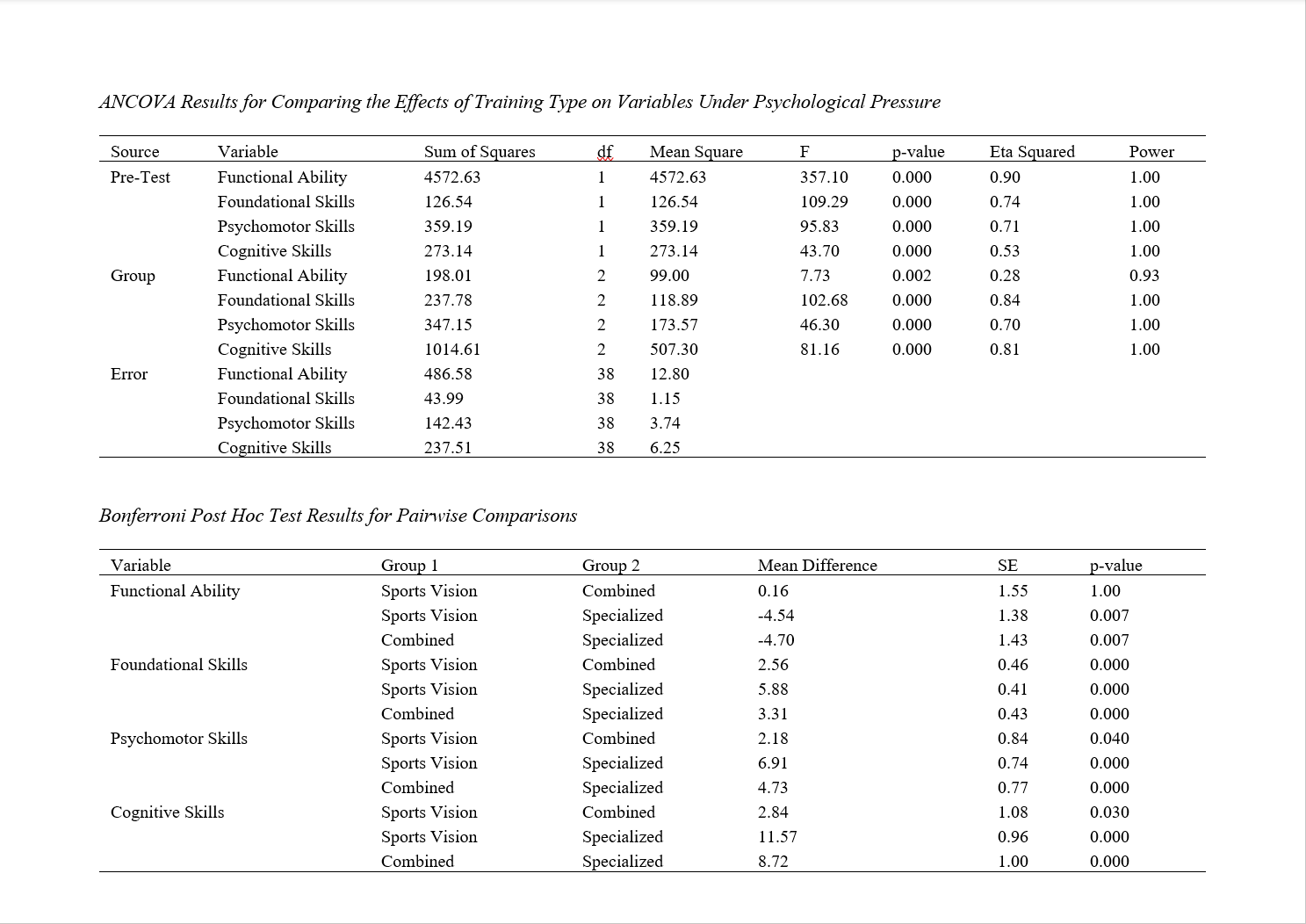Comparison of the Effect of Training Type on Functional Ability and Psychological Skills of Iraqi Male Volleyball Players Under Psychological Pressure
Keywords:
combined training, functional ability, mental pressure, Specialized/Traditional training, sports vision training, volleyballAbstract
Objective: The purpose of this study was to compare the effect of training type on the functional ability and psychological skills of Iraqi male volleyball players under psychological pressure.
Methods and Materials: This research employed a quasi-experimental design and was conducted in a field setting. A total of 45 participants who were interested and met the inclusion criteria were purposefully selected and randomly assigned to three groups of 15: sports vision training, traditional training, and combined training. Psychological components were measured using the Ottawa Mental Skills Assessment Tool (OMSAT-3). Functional ability was assessed using the repeated effort test by Sheppard et al. (2007). To determine trait and state anxiety, the SCAT inventory by Martens (1997) and the CSAI-2 by Martens et al. (1990) were used, respectively. To create conditions of psychological pressure in the post-test, a combined supervision and comparison method was employed (Esmaeili et al., 2019). Data were analyzed using covariance analysis and Bonferroni post hoc tests.
Findings: The results showed a statistically significant difference in the subscales of psychological skills in favor of the sports vision training group. Additionally, the scores of functional ability revealed a statistically significant difference favoring the specialized training group.
Conclusion: The use of sports vision training is recommended for enhancing psychological skill components, while the implementation of specialized/traditional training programs is suggested for optimizing functional abilities under psychological pressure for the target population.
Downloads

Downloads
Additional Files
Published
Submitted
Revised
Accepted
Issue
Section
License
Copyright (c) 2024 Mahmood Qasim Ali Al-wajedi (Author); Hamid Zahedi (Corresponding Author); Watheg Mdallal Obaid Al-Swaiedi, Rokhsare Badami (Author)

This work is licensed under a Creative Commons Attribution-NonCommercial 4.0 International License.








